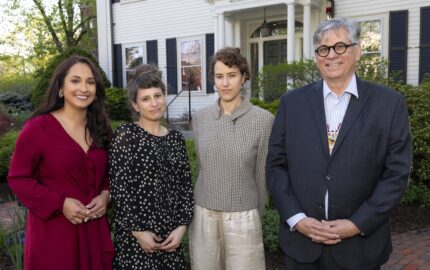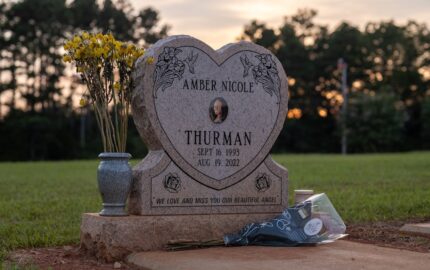Helena Luczywo, an independent Polish journalist and organizer of the underground press, has won the 1989 Louis M. Lyons Award for Conscience and Integrity in Journalism, the Nieman Foundation at Harvard University announced May 12, 1989.
A committee of the 23 members of the 1989 Class of Nieman Fellows chose Luczywo, 43, for the award. The award is in recognition of Luczywo's courage in reporting objectively on events in Poland, despite the difficulties and dangers posed bv clandestine publication. The award carries an honorarium of $1,000.
Luczywo is the deputy editor in chief of the only opposition daily in the East bloc, Gazeta, which published its first issue this month. Active in the underground press since martial law was declared in 1981, Luczywo founded the Solidarity News Agency, and became the editor in chief of the union's unofficial weekly, Tygodnik Mazowsze, the most influential underground publication in the country.
She was a negotiator in the recent discussions with the government, in which she demanded the establishment of an independent mass media in Poland. As a result of those talks, opposition journalists can now work in the open, and the national daily Gazeta will replace the samizdat weekly Tygodnik Mazowsze (which means Weekly of Mazowsze, the region around Warsaw). Adam Michnik, a pre-eminent Polish intellectual and opposition figure, will be Gazeta's editor in chief.
From 1977 to 1980 Luczywo co-edited Poland's first independent newspaper, Robotnik (The Worker), despite persecution by the police. Robotnik propagated the idea of free trade unions and helped to inspire the forerunner of Solidarity. It folded after the declaration of martial law. Tygodnik Mazowsze started out as an emergency union bulletin, but soon became a crucial source of uncensored information about subjects ranging from the unrest in Armenia to political reforms in Hungary.
Despite the threat of imprisonment and acts of sabotage, Luczywo ran a paper that by 1989 reached more than 100,000 readers. She has written several hundred articles and interviews, most of which had to be published anonymously. In 1986 Luczywo went to the United States for a year as a fellow of the Bunting Institute at Radcliffe College.
"Helena Luczywo not only is an extraordinarily tenacious editor who has mobilized and inspired Poland's opposition press," said Dorothy Wickenden, chair of this year's Lyons Award Committee. "She also has helped to create a new kind of alternative, uncensored journalism, which has played a crucial part in the reforms now underway througout the Soviet bloc."
A committee of the 23 members of the 1989 Class of Nieman Fellows chose Luczywo, 43, for the award. The award is in recognition of Luczywo's courage in reporting objectively on events in Poland, despite the difficulties and dangers posed bv clandestine publication. The award carries an honorarium of $1,000.
Luczywo is the deputy editor in chief of the only opposition daily in the East bloc, Gazeta, which published its first issue this month. Active in the underground press since martial law was declared in 1981, Luczywo founded the Solidarity News Agency, and became the editor in chief of the union's unofficial weekly, Tygodnik Mazowsze, the most influential underground publication in the country.
She was a negotiator in the recent discussions with the government, in which she demanded the establishment of an independent mass media in Poland. As a result of those talks, opposition journalists can now work in the open, and the national daily Gazeta will replace the samizdat weekly Tygodnik Mazowsze (which means Weekly of Mazowsze, the region around Warsaw). Adam Michnik, a pre-eminent Polish intellectual and opposition figure, will be Gazeta's editor in chief.
From 1977 to 1980 Luczywo co-edited Poland's first independent newspaper, Robotnik (The Worker), despite persecution by the police. Robotnik propagated the idea of free trade unions and helped to inspire the forerunner of Solidarity. It folded after the declaration of martial law. Tygodnik Mazowsze started out as an emergency union bulletin, but soon became a crucial source of uncensored information about subjects ranging from the unrest in Armenia to political reforms in Hungary.
Despite the threat of imprisonment and acts of sabotage, Luczywo ran a paper that by 1989 reached more than 100,000 readers. She has written several hundred articles and interviews, most of which had to be published anonymously. In 1986 Luczywo went to the United States for a year as a fellow of the Bunting Institute at Radcliffe College.
"Helena Luczywo not only is an extraordinarily tenacious editor who has mobilized and inspired Poland's opposition press," said Dorothy Wickenden, chair of this year's Lyons Award Committee. "She also has helped to create a new kind of alternative, uncensored journalism, which has played a crucial part in the reforms now underway througout the Soviet bloc."


